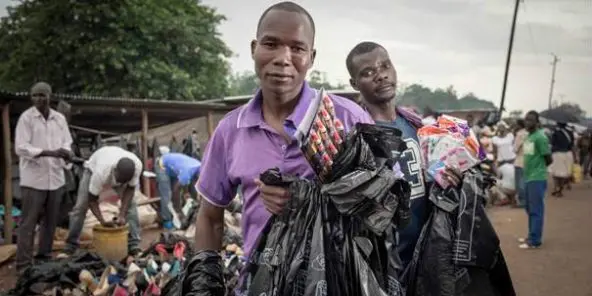
STATEMENT BY THE SOUTHERN AFRICA LITIGATION CENTRE IN RESPONSE TO REPORTS THAT THE SOUTH AFRICAN GOVERNMENT PLANS TO HANDOVER RWANDAN GENERAL TO A NEUTRAL COUNTRY
20 July 2011
The Business Day, reported today that the South African “government is negotiating the handover of alleged Rwandan war criminal and former general Kayumba Nyamwasa to a “neutral country”.
The Southern Africa Litigation Centre (SALC) and the Consortium for Refugees and Migrant Rights of South Africa (CoRMSA) have initiated judicial review proceedings to challenge the South African authorities’ decision to grant Nyamwasa refugee status. Nyamwasa is ineligible on account of his alleged involvement in the commission of crimes against humanity and war crimes.
The decision to remove Nyamwasa from South Africa may not only affect the legal proceedings currently underway but may also have other legal implications. SALC’s support for this decision will therefore depend on the manner in which the South African authorities plan to give effect to it. A number of issues therefore require clarity.
First, which country has the South African government deemed sufficiently neutral to handle the legal implications of Nyamwasa’s presence within their borders?
Second, does the decision to hand Nyamwasa over to a neutral country mean that the South African authorities will officially, and in accordance with South African Refugee and Immigration law, revoke or withdraw Nyamwasa’s refugee status? The withdrawal of Nyamwasa’s refugee status will send out a clear message that South Africa’s refugee and asylum law is not susceptible to abuse. As this is consistent with the relief sought in the review proceedings, SALC would welcome the decision in this regard.
Third, will the Nyamwasa’s handover be subject to conditions? The legal obligations triggered by Nyamwasa’s presence in South Africa are not unique to South African law but reflect the international law obligation imposed on all states not to afford refugee protections to individuals accused of serious international crimes. Any country that agrees to receive Nyamwasa will therefore be bound to ensure that the integrity of the institution of asylum is maintained in accordance with both domestic and international law. Nyamwasa’s ineligibility will not fall away if he leaves South Africa. The South African authorities must therefore seek assurances from the receiving country that he will be dealt with in accordance with the law.
Fourth, South Africa as a responsible member of the international community has committed itself to the fight against impunity for serious international crimes. The allegations made against Nyamwasa must therefore be properly investigated to determine the extent of his involvement. Therefore to handover Nyamwasa to a country that is unwilling or unable to deal with this matter appropriately may render South Africa complicit in Nyamwasa attempts to evade justice. Furthermore South Africa’s removal of Nyamwasa cannot not be seen as an attempt to side step its own obligations. Simply taking him out of South Africa’s legal sphere of influence is not appropriate. Assurances in this regard must also therefore be sought.
No official decision has been communicated to SALC or CoRMSA. It is therefore hoped that the South African authorities will verify this report and that the details of this decision will be shared with SALC and CoRMSA. Furthermore SALC encourages the South African authorities to proceed with this matter in an open and transparent manner, within the parameters of the law and in consultation with all parties concerned.



